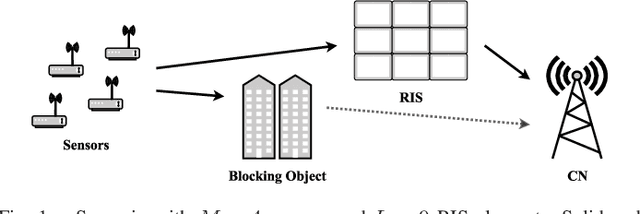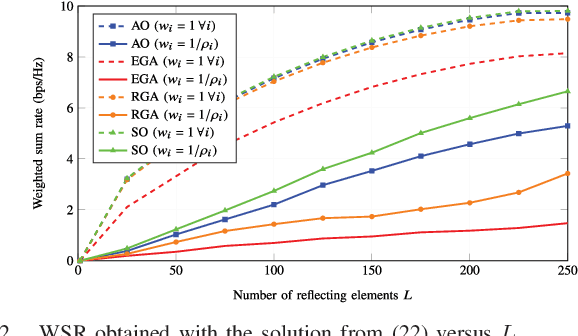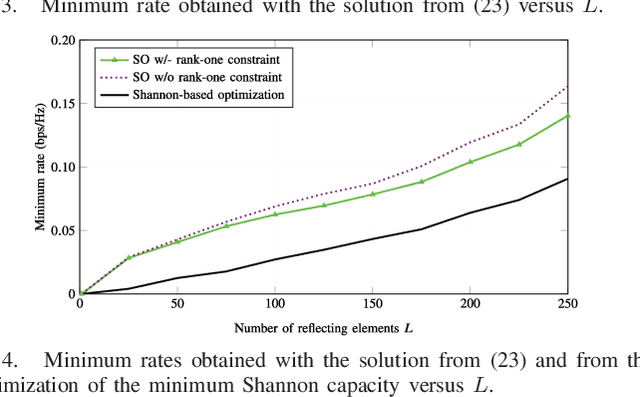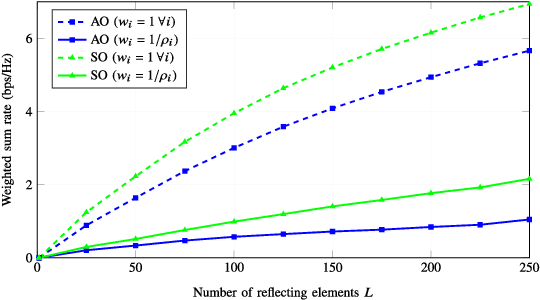Rate Optimization for RIS-Aided mMTC Networks in the Finite Blocklength Regime
Paper and Code
Dec 10, 2024



Reconfigurable intelligent surfaces (RISs) have become a promising candidate for the development of future mobile systems. In the context of massive machine-type communications (mMTC), a RIS can be used to support the transmission from a group of sensors to a collector node. Due to the short data packets, we focus on the design of the RIS for maximizing the weighted sum and minimum rates in the finite blocklength regime. Under the assumption of non-orthogonal multiple access, successive interference cancelation is considered as a decoding scheme to mitigate interference. Accordingly, we formulate the optimizations as non-convex problems and propose two sub-optimal solutions based on gradient ascent (GA) and sequential optimization (SO) with semi-definite relaxation (SDR). In the GA, we distinguish between Euclidean and Riemannian gradients. For the SO, we derive a concave lower bound for the throughput and maximize it sequentially applying SDR. Numerical results show that the SO can outperform the GA and that strategies relying on the optimization of the classical Shannon capacity might be inadequate for mMTC networks.
 Add to Chrome
Add to Chrome Add to Firefox
Add to Firefox Add to Edge
Add to Edge